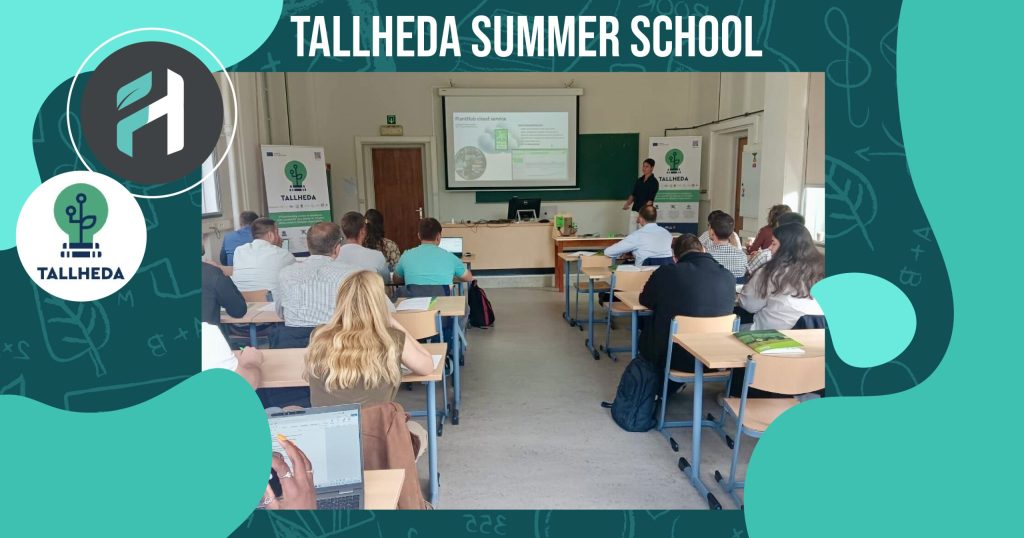TALLHEDA Summer School on Digital Agriculture in Ghent

The TALLHEDA Summer School on Digital Agriculture, organized by the University of Ghent, took place in Ghent, Belgium, from July 16-18. Participants from Belgium, Greece, and Serbia gathered to explore the forefront of digital and precision agriculture. This comprehensive program combined educational seminars, hands-on exercises, and corporate visits, offering a deep dive into the technologies that are revolutionizing the agricultural industry.
Day 1:
The program kicked off with a compelling lecture by Kathy Steppe on “Plant Sensors for Digital Agriculture,” sparking thoughtful discussions among participants. After a brief intermission, Wouter Maes led an expert discussion on remote sensing, shedding light on how these technologies are enhancing agricultural practices. The day concluded with an insightful farm excursion, where participants witnessed the real-world applications of the morning’s lessons.
Day 2:
Simon Cool opened the day with an engaging talk on “Robotics in Agriculture,” exploring the transformative potential of robotics in modern farming. His presentation was further enriched by a live demonstration, showcasing how these technologies are reshaping the agricultural landscape. Sebastiaan Verbesselt followed with an illuminating session on AI and drones, highlighting their practical applications in the field. The day wrapped up with a workshop led by DjustConnect on data sharing in agriculture, emphasizing the critical role of collaboration and data integration in driving agricultural innovation.
Day 3:
Koen Uyttenhove started the final day with a talk on the “Internet of Things (IoT) for Digital Agriculture,” discussing how IoT is revolutionizing farming practices to enhance productivity and efficiency. Participants then visited AVR Machinery, a leading manufacturer of potato machinery, where they observed cutting-edge technology in action. The day and the program concluded with a visit to AGRISTO NV, where participants gained valuable insights into the production of frozen potatoes, witnessing firsthand how technological advancements are driving the industry forward.
Conclusion
The TALLHEDA Summer School on Digital Agriculture was a priceless learning opportunity that significantly broadened participants’ understanding of the revolutionary potential of modern agricultural technologies. Through expert-led lectures, practical exercises, and enlightening company visits, the program provided an in-depth look at the innovative methods shaping the future of agriculture. By the time they departed, the participants had gained new insights and a fresh understanding of how digital tools support agricultural sustainability and efficiency. This event paved the foundation for future improvements in precision and digital agriculture by showcasing state-of-the-art developments in the area and fostering significant relationships and collaborations among international participants.
As a partner of TALLHEDA, Foodscale Hub (FSH) will continue to collaborate with other partners to facilitate academic visits, exchanges, and lectures while organizing targeted training seminars. FSH will also play a crucial role in supporting various Work Packages (WPs) within TALLHEDA, specifically WP2 and WP3, as well as driving the project’s dissemination, communication, and networking efforts through WPs 7, 8, and 9. By actively participating in project management and coordination, FSH will help ensure the success of TALLHEDA and the broader adoption of digital agriculture technologies.